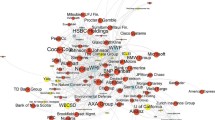Abstract
We propose a general method for evaluating, and possibly improving, the interface between scientific research and policy-making institutions. The method considers the adequacy of both institutional structures for incorporating research, and research for addressing institutional needs. It involves both interviews (with policy makers and scientists) and formal analyses of the links between the research and the decisions described in the interviews. A case study applies the method in analyzing the usefulness of climate change research for managing salmon runs in the Pacific Northwest. It shows these policy makers to be receptive to the research, which is, in principle, relevant to them. However, they are unable to use it because the research is not currently formulated in ways compatible with current decision-making models. For their part, these models are not comprehensive enough to capture the full range of potentially relevant environmental forcers, including climate change.
Similar content being viewed by others
References
Baddeley, A.: 1979, ‘Applied Cognitive and Cognitive Applied Research’, in Nilsson, L. G. (ed.), Perspectives on Memory Research, Lawrence Erlbaum, Hillsdale, NJ.
Battelle Pacific Northwest Laboratories and Carnegie Mellon University: 1994, Decision Making Information Needs Elicitation, Battelle Pacific Northwest Laboratories, Richland, WA.
Chatters, J. C., Neitzel, D. A., Scott, M. J., and Shankle, S. A.: 1991, ‘Potential Impacts of Global Climate Change on Pacific Northwest Spring Chinook Salmon: An Exploratory Case Study’, Northwest Environ. J. 7, 71-92.
Clemen, R. T.: 1991, Making Hard Decisions: An Introduction to Decision Analysis, Duxbury Press, New York, NY.
Cowling, E.: 1992. ‘The Performance and Legacy of NAPAP’, Ecological Applications: A Publication of the Ecological Society of America 2(2), 111-116.
Cowling, E. and Nilsson, J.: 1995, ‘Acidification Research: Lessons from History and Visions of Environmental Futures’, Water Air Soil Pollut. 85(1), 279-292.
Cvetkovich, G. and Lofstedt, R. (eds.): 1999, Social Trust: Advances in Concepts and Research, in press.
Dowlatabadi, H. and Morgan, G.: 1999, Integrated Assessment, Cambridge University Press, New York, NY, in press.
Ericsson, K. A. and Simon, H. A.: 1984, Protocol Analysis: Verbal Reports as Data, MIT Press, Cambridge, MA.
Fischhoff, B., Bostrom, A., and Quadrel, M. J.: 1997, ‘Risk Perception and Communication’, in Detels, R., McEwen, J., and Omenn, G. (eds.), Oxford Textbook of Public Health, Oxford University Press, London, pp. 987-1002.
Fischhoff, B., Downs, J., and de Bruin, W. B.: 1998, ‘Adolescent Vulnerability: A Framework for Behavioral Interventions’, Appl. Preventive Psychol. 7, 77-94.
Fischhoff, B., Slovic, P., and Lichtenstein, S.: 1980, ‘Knowing What You Want: Measuring Labile Values’, in Wallsten, T. (ed.), Cognitive Processes in Choice and Decision Behavior, Erlbaum, Hillsdale, NJ, pp. 117-141.
Fischhoff, B. and Welch, N.: 1999, ‘Construal Processes in Preference Elicitation’, J. Risk Uncertainty, in press.
Gingrich, N.: 1997, October 23, Statement by House Speaker.
Healey, R. G. and Ascher, W.: 1995, ‘Knowledge in the Policy Process: Incorporating New Environmental Information in Natural Resources Policy Making’, Policy Sci. 28, 1-19.
Heffron, F.: 1982, Organization Theory and Public Organizations, Prentice Hall, Englewood Cliffs, NJ.
Jones, S. A.: 1996, A Methodology for Evaluating the Usefulness of Global-Change Information for Long-Term Decision Making: A Case Study of Fisheries Management in the Pacific Northwest, Unpublished Ph.D. Dissertation, Department of Engineering and Public Policy, Carnegie Mellon University, Pittsburgh, PA.
Jones, S. A., Fischhoff, B., and Lach, D: 1998, ‘An Integrated Impact Assessment for the Effects of Climate Change on the Pacific Northwest Salmon Fishery’, Impact Assess. Project Appraisal 16, 227-237.
Keeney, R. L.: 1994, ‘Establishing Research Objectives to Address Issues of Climate Change’, Socio-Econ. Planning Sci. 28, 1-8.
Kopp, R. J., Pommerehne, W. W., and Schwarz, N. (eds.): 1997, Determining the Value of Nonmarketed Goods, Kluwer Academic Publishers, Dordrecht.
Mayo, D. G. and Hollander, R. D. (eds.): 1991, Acceptable Evidence: Science and Values in Risk Management, Oxford University Press, New York, NY.
Monastersky, R.: 1993, ‘The $1.5 Billion Question’, Sci. News 144, 158-159.
Morgan, M. G. and Henrion, M.: 1992, Uncertainty: A Guide to Dealing With Uncertainty in Quantitative Risk Analysis and Policy Analysis, Cambridge University Press, NY.
National Research Council: 1993, Human Dimensions of Global Change, National Academy Press, Washington, D.C.
National Research Council: 1995a, Criteria for Federal R&D, National Academy Press, Washington, D.C.
National Research Council: 1995b, Research Strategies for the US Global Change Research Program, National Academy Press, Washington D.C.
National Research Council: 1996, Upstream: Salmon and Society in the Pacific Northwest, National Academy Press, Washington, D.C.
National Research Council: 1998, Setting Priorities for the National Institutes of Health, National Academy Press, Washington, D.C.
Pielke, R. A.: 1995, ‘Usable Information for Policy: An Appraisal of the US Global Research Program’, Policy Sci. 28, 39-77.
Raiffa, H.: 1968, Decision Analysis: Introductory Lectures on Choices under Uncertainty, Addison-Wesley, Reading, MA.
Read, D., Ann Bostrom, A., Morgan, M. G., Fischhoff, B., and Smuts, T., 1994, ‘What Do People Know about Global Climate Change? Part II: Survey Studies of Educated Laypeople’, Risk Anal. 14, 971-982.
Rubin, E. Lave, L., and Morgan, M. G.: 1992, ‘Keeping Climate Research Relevant’, Issues Sci. Technol. 7(2), 47-55.
Steinke, C. A. (ed.): 1991, Information Seeking and Communication Behavior of Scientists and Engineers, Haworth Press Inc., New York, NY.
Svenson, O.: 1990, ‘Some Propositions for the Classification of Decision Situations’, in Borcherding, K., Larichev, O. I., and Messick, D. M. (eds.), Contemporary Issues in Decision Making, Elsevier, Amsterdam, pp. 17-27.
Author information
Authors and Affiliations
Rights and permissions
About this article
Cite this article
Jones, S.A., Fischhoff, B. & Lach, D. Evaluating the Science-Policy Interface for Climate Change Research. Climatic Change 43, 581–599 (1999). https://doi.org/10.1023/A:1005495119477
Issue Date:
DOI: https://doi.org/10.1023/A:1005495119477




